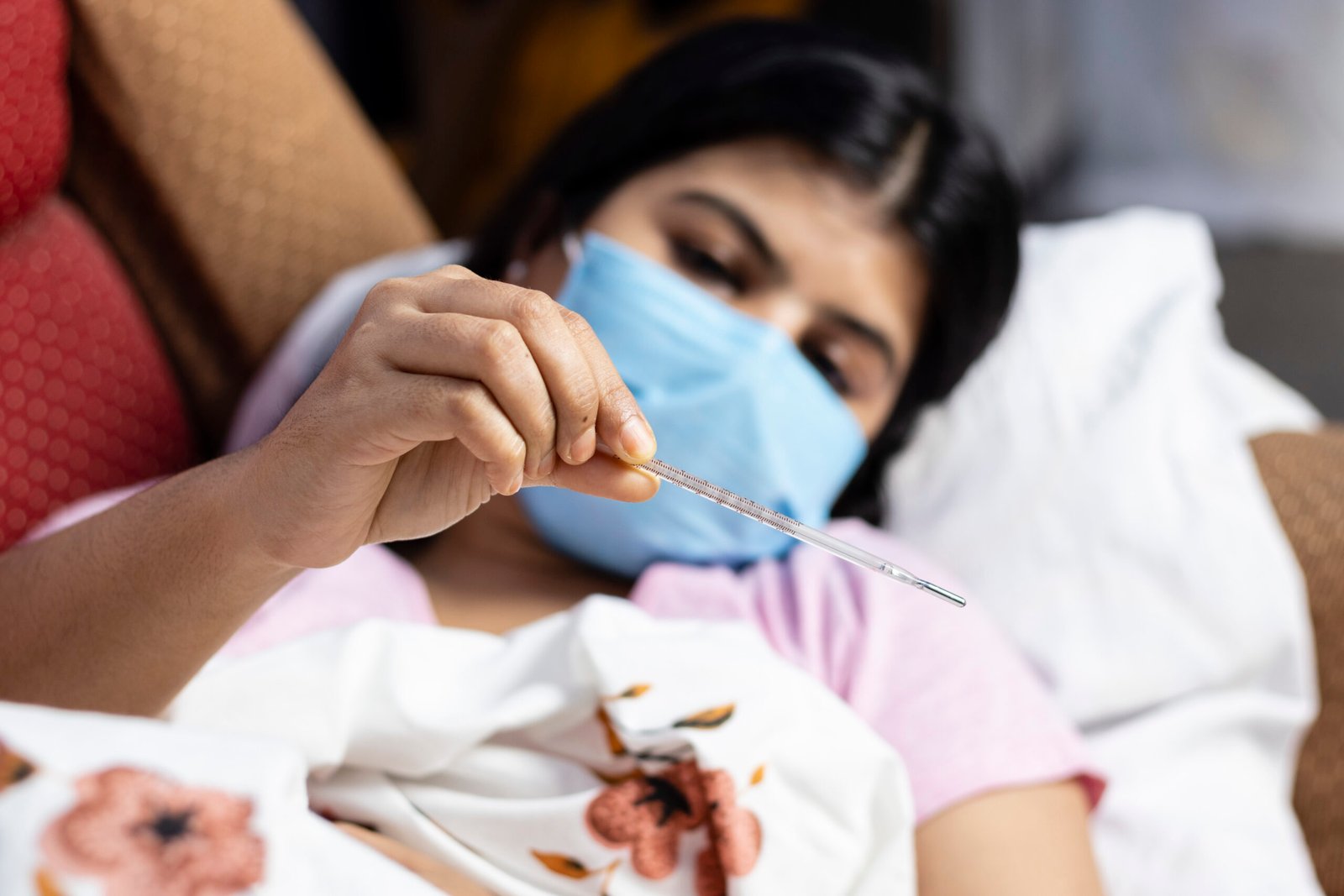
Life of a Home Care Physician
April was a chaotic month. What we saw in the past four weeks was no less than an episode of a web series that documented a myriad of emotions, mainly on the sad side of human life.
Delhi became the COVID capital of the World with almost 40,000 positive cases of COVID-19 infection daily. The positivity rate crossed 30% and it resulted in a catastrophic disaster. The emergency rooms of all hospitals were choked with the rain of COVID-19 patients, it was a healthcare disaster.
Overburdened front-line workers and little room to accommodate everyone, a dire situation turned up of a lack of oxygen supplies that killed hundreds of innocent lives.”I must have said, No and Sorry to so many of the people who approached me in the last month”, says Dr Charu Dutt Arora, a Home Care-Intensive care COVID expert physician. Many think Home Isolation means monitoring Spo2 (Oxygen saturation) for mild patients at home. However, this time we witnessed Dr Charu manage more than 100 critical patients at home with his team.
“We tried to treat these patients, manage their vitals, provide complete nursing support and successfully avoided more than 95% of these to require hospital admission”, says Dr Charu with a humbling smile.
One of his patients was Mrs Thapar, a senior citizen living in the affluent residential society of Faridabad. When she found on the 20th of April that she was COVID-19 positive, she isolated herself and consulted Dr Arora. But not did she know that it would be less than 48 hours before her oxygen levels would start to fall and lead to breathlessness.
“My aim is not just to provide Oxygen support at home, rather avoiding the situation to turn into Cytokine storm and take care of her blood coagulation issues”, comments Dr. Charu on this particular case. The lady’s CT scan severity score was 18/25 (severe pneumonia suggesting almost 60-65% of lung involvement). With an army of nursing support, continuous oxygen management, and skillful treatment, she came out as a COVID survivor last week.
Home ICU has proven to be a boon bridge between a patient’s home and hospital. It has proven to be a successful healthcare vertical that has decreased the load on hospitals and provided comfort and personalized care to critical patients suffering from COVID-19.
Another successful case managed by him through the HOME ICU setup is of Mr Singh, a 34-year-old man in Palwal. He was on NIV (noninvasive ventilator) support for more than two weeks and with the holistic medical approach, he met Dr Arora yesterday in his follow-up outpatient room.
“Working 16-18 hours daily has been a very tough ordeal, where I go home just to sleep and have my breakfast and leave for work. But managing patients remotely and planning their treatment for successful outcomes takes care of all my stress. I believe strongly in the nursing staff who follow the guidelines meticulously and that’s what do wonders in the end. Its all about teamwork, afterall”, adds Dr Arora.
Dr Charu Dutt Arora is currently working as Chief Consultant- Critical Care and Home Care for HOUSEPITAL Home Health Care Services.

Immune boosting foods for daily routine
The COVID-19 pandemic has been a global concern for the last two years. The delta variant surge is still causing havoc in many parts of the world. And as we all are struggling with the imminent dangers that this virus poses to mankind, there are a few key measures that individuals can take to fight this disease.
While it is crucial to mention inevitable practices such as social distancing and maintaining good hand hygiene, there are also certain ways to improve your immunity which is paramount at this time.
Individuals with certain pre-existing illnesses like diabetes, hypertension, cardiovascular disease, and respiratory issues are at a higher risk of having Covid 19 complications, it also aggravates with age as the general immunity reduces as you get older.
Balanced Diet
The food you eat plays a key aspect in determining your overall health and immunity.
- Eat low carbohydrate diets, as this will help control high blood sugar and pressure.
- Focus on a protein-rich diet to keep you in fit shape.
- Consume vegetables and fruits rich in beta-carotene, Ascorbic acid & other essential vitamins. Certain foods like mushrooms, papaya, tomato, bell pepper, and green vegetables like broccoli, and spinach are also good options to build resilience in the body against infections.
- Supplements rich in omega 3 & 6 fatty acids can also be added to your daily dose if stepping out to buy groceries is not an option during social distancing.
- Ginger, gooseberries (amla), and turmeric are some natural immunity boosters. Some of these superfoods are common ingredients in Indian cuisine. Several herbs help in boosting immunity like garlic, Basel leaves, and Black cumin. Certain seeds and nuts like sunflower seeds, Flax seeds, pumpkin seeds, and melon seeds are excellent sources of protein and vitamin E.
- Probiotics like Yoghurt and fermented food are also excellent sources to rejuvenate the composition of gut bacteria, which is important for nutrient absorption by the body. These are good options for the older generation too.
- Avoid outside food: with the current season of preventable monsoon illnesses such as Typhoid and Gastroenteritis, it is advisable not to eat from outside places.
Sleep
A good night’s sleep time of 7-8 hours is the best way to build your immunity. Lack of sleep impairs the brain activity and leaves you tired.
Water intake
Keep yourself hydrated. Drink around 10-14 glasses of water per day which will help in flushing the toxins from your body.
Exercise
Although we are not allowed to access fitness centers and gyms during the lockdown, a light exercise of 30 minutes such as walking, yoga, stretching, and cardio builds your stamina and helps you remain energized throughout the day.
Mindfulness
Practice meditation which releases your stress and checks the Cortisol levels in your body.
Avoid Smoking, alcohol, and other addictive substances
Certain habits like smoking, hookah, alcohol consumption, and substance abuse have a direct correlation between weakened body defenses and respiratory illnesses. Engaging in smoking is proven to weaken your lung capacity and destroy the cells lining your respiratory tracts, these cells are crucial to fight viruses that enter through your nasal orifices. There is new research claiming that individuals who engage in heavy alcohol consumption tend to suffer from ARDS (Acute Respiratory distress syndrome) which is one of the conditions caused by viral infection.
While the battle against the COVID-19 pandemic is fought by our front liners, there is an increase in flu, dengue, and gastrointestinal diseases, we can do our bit by limiting our exposure to the virus by staying indoors, social distancing, eating healthy, hydrating and following basic hygiene protocol.

Post covid complications in Children
Since December 2019, the world has been going through the COVID-19 pandemic which has shocked doctors and scientists all over. Although children affected with the coronavirus have minimum symptoms and are less likely to get critical, the post-COVID complications in this age group are many and can lead to increased morbidity.
1. Diabetes
There is a new study released by the CDC showing a drastic increase in the incidence of Diabetes mellitus in children affected by the COV-2 virus. One study revealed a 2.6 times higher number of Diabetes cases among children. There are metabolic and social reasons that lead to these changes in kids. The virus directly attacking the pancreatic cells, higher stress levels leading to insulin resistance, and a sedentary lifestyle during the pandemic are some of the major reasons.
However, it is still unsure if the diabetic changes are temporary or chronic. Parents and school teachers should keep track of children and their symptoms such as increased thirst, hunger, frequent urination, stomach pain, nausea, unintentional weight loss, fatigue, and vomiting.
2. MISC (Multi-System Inflammatory Syndrome in Children)
One of the rare but debilitating post-COVID sequelae is Multi-system inflammatory syndrome in children. A constellation of signs and symptoms, MISC involves different organs such as the heart, lungs, vessels, brain, digestive system, and eyes. The symptoms include fever, vomiting, diarrhea, pain abdomen, redness in the eyes, rash, joint pain, headache, dizziness, and enlarged lymph nodes. Intravenous immunoglobulins and steroids are given to treat this rare disease.
3. Long haulers
Children, asymptomatic or mildly symptomatic can have chronic complications due to COVID-19. These long haulers can have multiple issues such as breathing difficulties, brain fogging, headache, joint or muscle pain, fever, heart palpitations, lightheadedness, and stomach pain.
4. Mental issues
Just like everyone, children and adolescents are facing the repercussions of the COVID-19 pandemic. As per many studies done in various parts of the world, there is an increased incidence of anxiety, grief, social isolation, uncertainty and mood disorders in children post-COVID. The pandemic fatigue and high levels of stress are major attributable factors behind this.
5. Developmental issues
Many children may experience subtle changes in neurocognition, speech, attention, movement, and mood. Rarely, kids can develop swelling in their brain leading to encephalitis.

Dr. Charu Dutt Arora
a Seasoned Senior Care Expert with 8 years of invaluable Experience brings Compassionate and Specialized care to every individual under his Guidance.
Appointment & Enquiry
Contact Us
+91 7505102181
Website
www.drcharuduttarora.com
Asian Institute of Medical Sciences - Faridabad
Badkal Flyover, Road, Sector 21A, Faridabad, Haryana 121001
Amerihealth Home Health Care - Sector 9 Faridabad
Shop No 1, Huda Market, Sector 9, Faridabad, Haryana 121006
Asian Institute of Medical Sciences - Noida
D-141 A, &, Sector 41 Block B Rd, Noida, Uttar Pradesh 201301